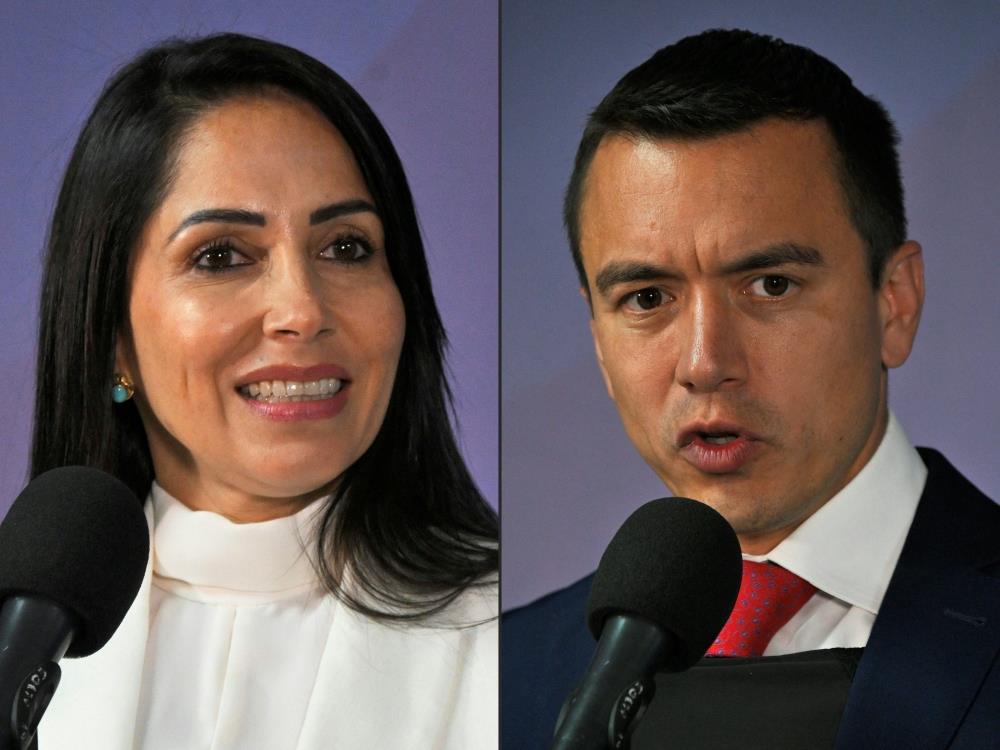(MENAFN- The Peninsula) AFP
Quito: A socialist lawyer will battle a surprise right-wing candidate to become the next president of Ecuador, a once-peaceful nation engulfed by lawlessness linked to the global drug trade.
Luisa Gonzalez, a lawyer close to divisive former socialist president Rafael Correa, came out on top in Sunday's first-round election, with 33 percent of the votes.
After a chaotic election marred by the assassination of a serious contender, the right-wing businessman Daniel Noboa, 35, unexpectedly came in second place with 24 percent of the votes.
With 98 percent of votes counted, no candidate hit the threshold to claim victory.
"We are heading to a second-round election on October 15," president of the National Electoral Council Diana Atamaint told journalists.
Noboa, said the "youth" had chosen him to beat Correa's party, while Gonzalez hailed her "triumph" in the first round. "We are making history," she said.
The small South American country has in recent years become a playground for foreign drug mafias seeking to export cocaine from its shores, stirring up a brutal war between local gangs.
It hit a record of 26 homicides per 100,000 inhabitants last year, almost double 2021's figure and higher than the rate in Colombia, Mexico and Brazil.
In one of the world's most biodiverse countries, voters also chose to halt an oil drilling project in an Amazon reserve, in a referendum hailed as an historic example of climate democracy.
The "Yes" vote to halt exploitation of an oil block in the Yasuni National Park, one of the most diverse biospheres in the world, won by 59 percent, with 98 percent of votes tallied.
'Security, above all'
Ecuador was once seen as a haven of peace wedged between cocaine-producing nations Colombia and Peru.
It straddles the Andes and the Amazon and was best known as the world's top exporter of bananas and home to the biodiverse Galapagos Islands, which inspired British scientist Charles Darwin's theory of evolution.
However, in the past five years, its large ports, lax security and corruption have lured foreign cartels that have come under increased pressure from the war on drugs in Mexico and Colombia.
The murder of journalist-turned-candidate Fernando Villavicencio just 11 days before the vote underscored the challenges facing Ecuador.
Soldiers and police searched voters at polling stations, while some of the eight presidential candidates wore helmets and bulletproof vests to cast their ballots.
"The most serious problem is insecurity," said voter Eva Hurtado, 40, as she left a polling station north of the capital Quito on Sunday. "So many crimes, assassinations, disappearances. We are afraid."
Adding to the instability, Ecuador has been without a congress for three months after outgoing President Guillermo Lasso dissolved it and called a snap election to avoid an impeachment trial just two years after coming to power.
Gonzalez, who has positioned herself as a defender of ex-president Correa's socialist legacy, has said he would be a close adviser if she is elected.
Correa was sentenced to eight years in jail after an investigation by Villavicencio into corruption and fled to Belgium where he has been living in exile for six years.
Villavicencio, who was second in the polls until his murder, was replaced by close friend and fellow journalist Christian Zurita, who came third with 16 percent of votes.
However, it was Noboa, who appeared in the only televised debate in a bulletproof jacket, who pulled off the biggest surprise of the day.
His father, Alvaro Noboa, who amassed a fortune selling bananas and boats, ran unsuccessfully for the presidency five times.



















Comments
No comment